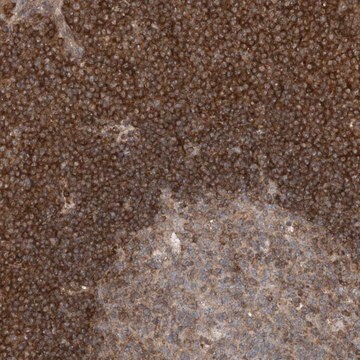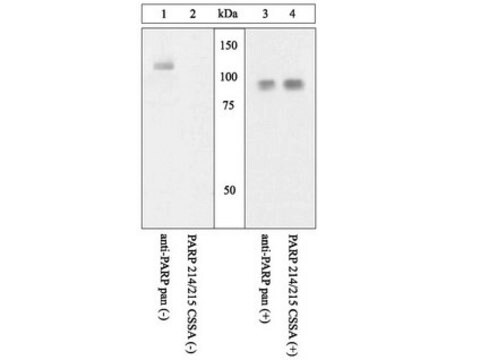C1104
Monoclonal Anti-Caspase 7 antibody produced in rat
clone 11E4, purified immunoglobulin, buffered aqueous solution
About This Item
Produits recommandés
Source biologique
rat
Conjugué
unconjugated
Forme d'anticorps
purified immunoglobulin
Type de produit anticorps
primary antibodies
Clone
11E4, monoclonal
Forme
buffered aqueous solution
Poids mol.
antigen (full length) 35 kDa
antigen (subunit) 20 kDa
Espèces réactives
human
Technique(s)
immunoprecipitation (IP): suitable
microarray: suitable
western blot: 2-4 μg/mL using a whole extract of cultured human acute T cell leukemia Jurkat cells
Isotype
IgG2a
Numéro d'accès UniProt
Conditions d'expédition
dry ice
Température de stockage
−20°C
Modification post-traductionnelle de la cible
unmodified
Informations sur le gène
human ... CASP7(840)
Description générale
Immunogène
Application
- Immunoprecipitation
- Microarray
- Western blotting at a concentration of 2-4μg/mL using a whole extract of cultured human acute T cell leukemia Jurkat cells.
Actions biochimiques/physiologiques
Notes préparatoires
Clause de non-responsabilité
Vous ne trouvez pas le bon produit ?
Essayez notre Outil de sélection de produits.
En option
Code de la classe de stockage
10 - Combustible liquids
Certificats d'analyse (COA)
Recherchez un Certificats d'analyse (COA) en saisissant le numéro de lot du produit. Les numéros de lot figurent sur l'étiquette du produit après les mots "Lot" ou "Batch".
Déjà en possession de ce produit ?
Retrouvez la documentation relative aux produits que vous avez récemment achetés dans la Bibliothèque de documents.
Notre équipe de scientifiques dispose d'une expérience dans tous les secteurs de la recherche, notamment en sciences de la vie, science des matériaux, synthèse chimique, chromatographie, analyse et dans de nombreux autres domaines..
Contacter notre Service technique







